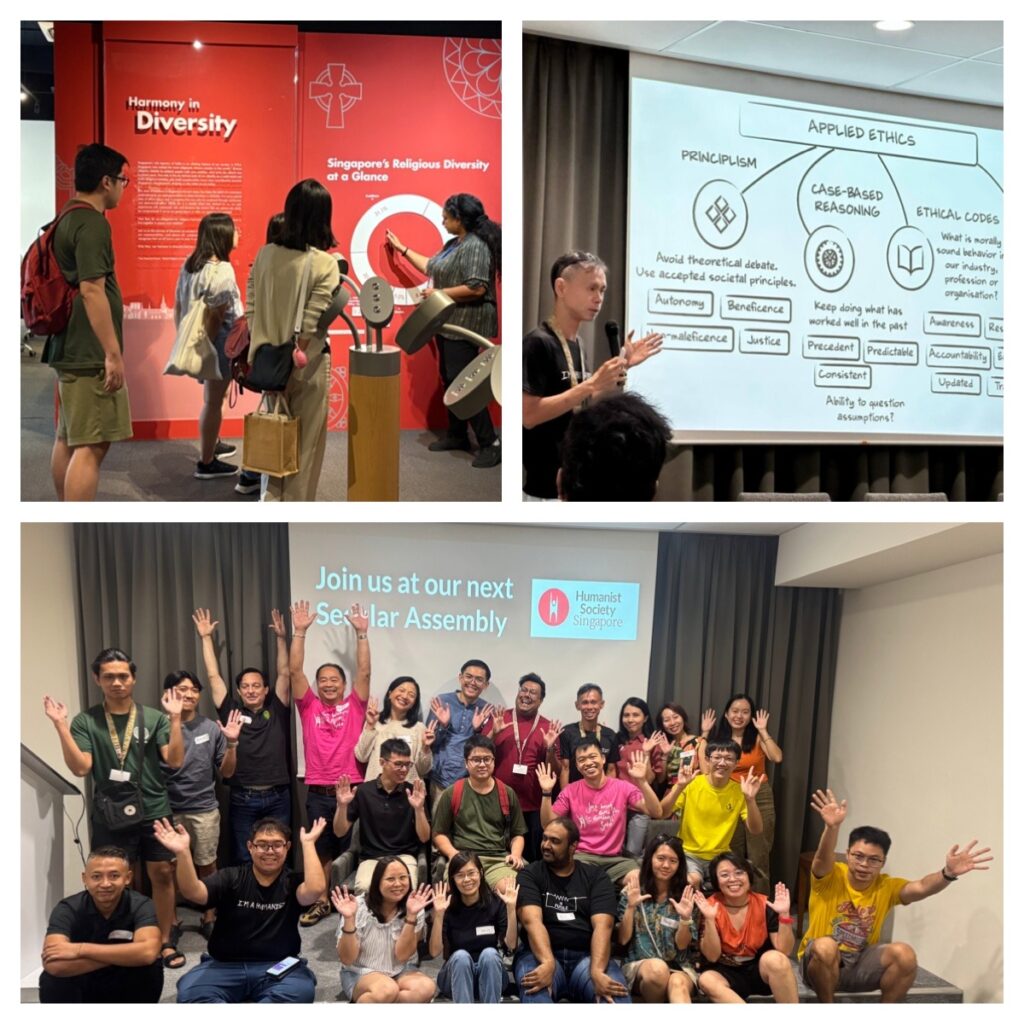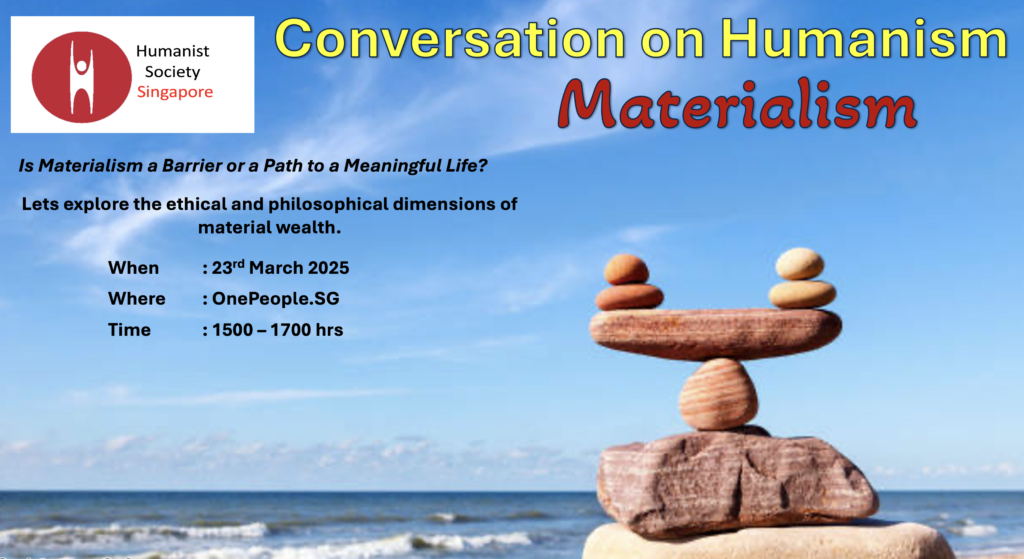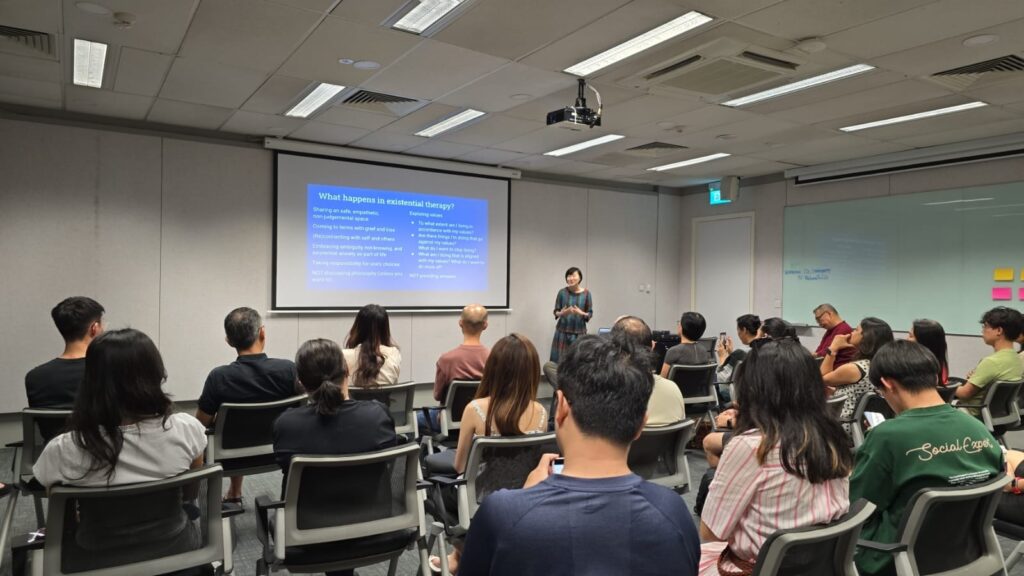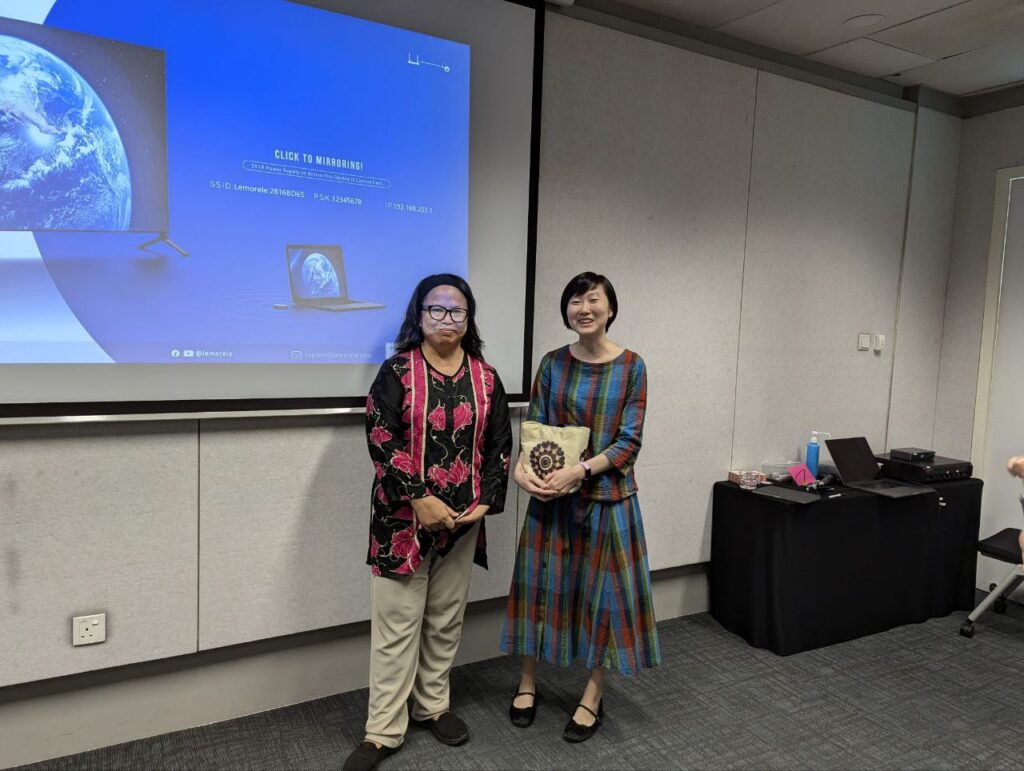Our fourth Secular Assembly of the year, held on 19 April, responded to a fundamental question. Without depending on a supernatural authority, what frameworks can non-religious people use to live an ethical and meaningful life?

A look at the philosophy of ethics
Our guest speaker Adrian Chia provided a whirlwind introduction to ethical approaches and acknowledged their links to humankind’s history of cultural traditions and intellectual inquiry. Adrian, a regular volunteer at HSS with a background in philosophy, ethics, and psychology, discussed four main branches of the philosophy of ethics: metaethics, descriptive ethics, normative ethics and applied ethics. Diving into applied ethics, the study of how moral principles can be used in real-life situations, he discussed principlism (an approach that prioritises commonly accepted principles such as justice and autonomy), case-based reasoning and ethical codes (e.g., codes of conducts followed by professions).
Beyond the Golden Rule
The study of ethics gives us a plethora of concepts. Want a quick takeaway that can be applied to daily life? In terms of personal and specific recommendations to humanists, Adrian highlighted the Golden Rule and its variations as useful moral tools.
A formulation of the Golden Rule is “Treat others as you would like others to treat you”. Related principles have arisen across the major faiths across the world, which arguably indicates that these principles are rooted in collective human experience. Beyond the Golden Rule, Adrian noted its limitations and certain variations to consider: the Silver Rule (“Do not treat others in ways that you would not like to be treated”) the Platinum Rule (“Treat others the way they would like to be treated”) and the Rhodium Rule (“Think about the entire ecosystem”).
Throughout the talk, members of the audience added their perspectives on varied topics such as karma, sin and gender biases. Attendees were also polled on a variety of trolley problems that challenged us to determine what to do in a situation where individual rights and collective good seem in conflict. As Adrian put it, readymade answers to complex ethical questions are in short supply: “there is no Ten-Year Series”.
Adrian’s recommendations for further reading and exploration included:
- Sophie’s World by Jostein Gaardner – an introduction to philosophy in novel form
- The Moral Landscape by Sam Harris – a neuroscientific look at morality
- The Moral Landscape Challenge, an essay rebutting the book
- Three Worlds Collide by Eliezer Yudkowsky, a short story on metaethics
- The Effective Altruism movement, which provides a framework for identifying effective charities
In addition to the guest talk, we continued the tradition of previous Assemblies by holding a fun singalong and a closing meditation which united our group in reflection on everyone’s interdependence within wider society. For more fellowship and thought-provoking conversations, join us for the next Assembly as we continue to build the Humanist community!













